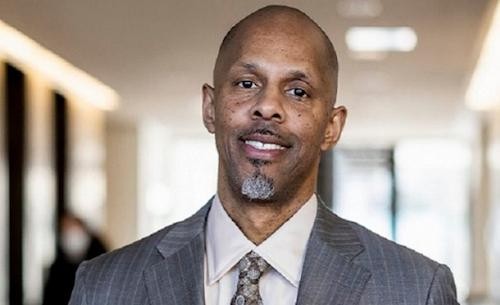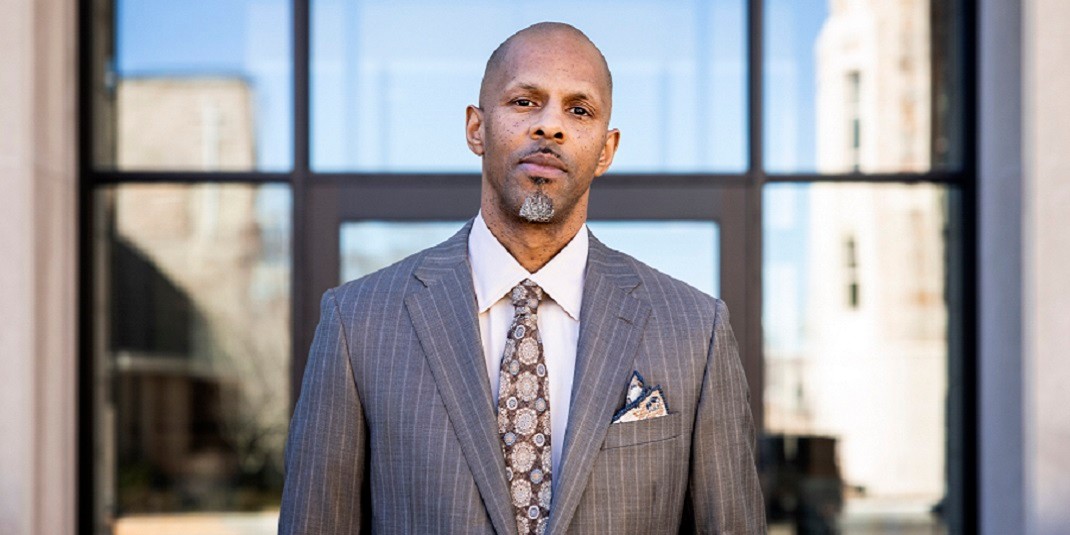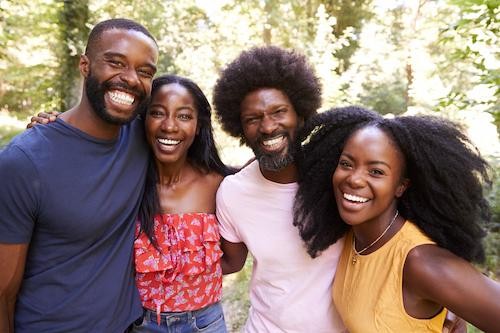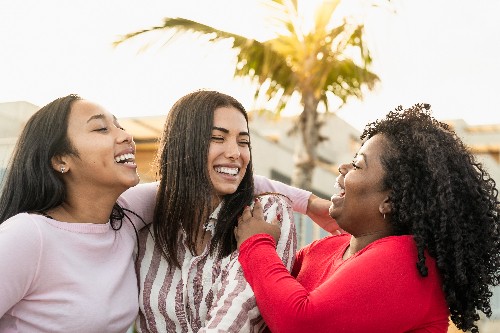News
_________________________________________________________________________________________________________________________________________________________________________________
Conversation with Dr. Robert Motley about emerging adults' transitional phase towards adulthood. When this group faces mental illness, racism, homophobia, and sexism, access to treatment becomes challenging, escalating community violence and incarceration rates. To break this cycle, researchers like Dr. Motley suggest robust support systems, accessible transportation, a sense of belonging, and opportunities for upward social mobility.
_________________________________________________________________________________________________________________________________________________________________________________
Featured in NASW and Oxford University Press Social Work Research Journal:
“Prevalence and Correlates of Police Contact Anxiety among Male and Female Black Emerging Adults in St. Louis, Missouri.”
Dr. Motley and researchers studied the prevalence and severity of anxiety in the study participants, broken down along lines of male vs. female, income, and seeing a video vs. directly witnessing or being a victim of police contact or police violence. They found higher levels of anxiety among males, among those experiencing police violence, and among those witnessing community violence. Work and income were also factors in anxiety levels reported to researchers.
Authors called for more research in this area. Also, they recommend that social workers working with Black young adults be aware of possible anxiety related to police contact in this population.
Touched by Violence
“Police violence can affect anyone, but there are additional consequences to consider if that violence is perceived to occur because of one’s skin color or ethnicity,” said Motley, whose dissertation at Washington University-St. Louis was based on interviews with 300 Black college students in St. Louis who had personally experienced or witnessed police violence, or watched it on video. “There are quantifiable harmful effects, even if the person was an observer of the violence, and these can endure for a significantly long time.”
Study Explores Threats to Personal Safety of Emerging Adults
The impact of violence on Massachusetts emerging adults mirrors many national trends, the RB-VIP study notes: Among its findings is that emerging-adult males experience considerably higher rates of homicides than females in the same group, and Black emerging adults account for higher rates of homicides than their counterparts from other ethnic groups.
_________________________________________________________________________________________________________________________________________________________________________________
How do rates of exposure to police violence that is perceived to be motivated by racism vary among young Black and Latinx people?
How do rates of exposure to police violence that is perceived to be motivated by racism vary across the gender, ethnicity, and birthplace of young Black and Latinx people living in the United States?Researchers in the Boston College School of Social Work have received a two-year, $395,000 grant from the Robert Wood Johnson Foundation’s Evidence for Action program to find out.
How do rates of exposure to perceived racism-based police violence vary among Black emerging adults?
Black people age 18 to 29 who encounter police violence experience an increase in anger, depression, and hypervigilance, said Motley, who studies the interplay between racism, violence, and trauma among emerging adults. Their self-esteem often drops, he said, and unwanted thoughts sometimes pop into their heads without warning. When something reminds them
Events
Stay up-to-date on future events.
Subscribe to our e-newsletter to be the first to know!
This comprehensive three-day event embarks on an enlightening journey through the multifaceted aspects of mental and physical health in Black and Brown communities.
March 18, 2024 The series begins with "Triggered Life: Film Screening and Clinical Discussion on Black and Brown Male Mental Wellness," focusing on the impact of sexual trauma and cultural expectations on mental health.
March 19, 2024 The second day, titled "Promoting Physical Health in Black and Brown Men: Panel Discussion," shifts the focus to physical well-being, discussing healthcare access, preventative measures, and the role of cultural competence in healthcare.
March 20, 2024 The final day, "The Role of Mental Health Professionals in Identifying and Treating Law Enforcement Related Trauma among Black and Latinx Emerging Adults," offers a deep dive into the challenges posed by police violence and law enforcement-related trauma. This event is an invaluable opportunity for nursing and MSW students, healthcare professionals, community leaders, and advocates to engage, learn, and contribute to advancing health and wellness in Black and Brown communities.
Triggered Life is a multi-sensory, multimedia, post-traumatic story. How exactly does sexual trauma cast a shadow over the wholeness of Black male selfhood? When the shared cultural values of Black and Brown communities demand that men suppress their vulnerabilities and meet with their psychology alone.
Triggered Life follows a day in the life of two such men, Ishmael and Keith. As these men relive their stories of abusive childhoods, they embark on a journey to define their own manhood and identity.
The Triggered Life experience is a 90-minute tour de force followed by talkbacks facilitated by Roxann Mascoll MS, MSW LICSW on October 27, 2023. A workshop will be held for MSW and Nursing students on November 10, 2023.
Robert O. Motley, Jr., the founder of the Racism-Based Violence Injury and Prevention Lab, moderated a community discussion with guest speakers Ruth Rollins, Dr. Jonathan Jay, Dr. Christopher St. Vil and Issac Yablo on the unique experiences of homicide violence among Black emerging adults on June 24, 2023.
Robert O. Motley, Jr., the founder of the Racism-Based Violence Injury and Prevention Lab, and Lab Manager, Christopher Baidoo, participated in a panel discussion on the unique experiences of aging and healthcare among older adults in the Black community on im March 4, 2023.
Robert O. Motley, Jr., the founder of the Racism-Based Violence Injury and Prevention Lab, participated in a panel discussion on the impact of violence on mental health in the Black Community at the Kingdom Empowerment Center in Cambridge, Massachusetts, on July 24, 2022.
The Boston College School of Social Work hosted a screening of Our Philadelphia, a short documentary about grief and the aftermath of gun violence from the perspective of teenagers, on Aprill 22, 2022.
Following the screening, Robert O. Motley, Jr., the founder of the Racism-Based Violence Injury and Prevention Lab, participated in a panel discussion with Malaika Palacios, an MSW student at BC, and Nora Gross, the producer of the documentary.
In two harrowing years in Philadelphia, three students from the same high school were killed in separate gun shootings. How their friends and the school community coped with the trauma became the subject of Our Philadelphia, a documentary film made by students themselves.
The Boston College School of Social Work co-hosted a screening of the documentary and a panel discussion with three of the filmmakers on December 3, 2021. Following the discussion, which was moderated by Robert O. Motley, Jr., the founder of the Racism-Based Violence Injury and Prevention Lab, attendees broke out into groups to discuss the broader themes of the film.


.jpg)






